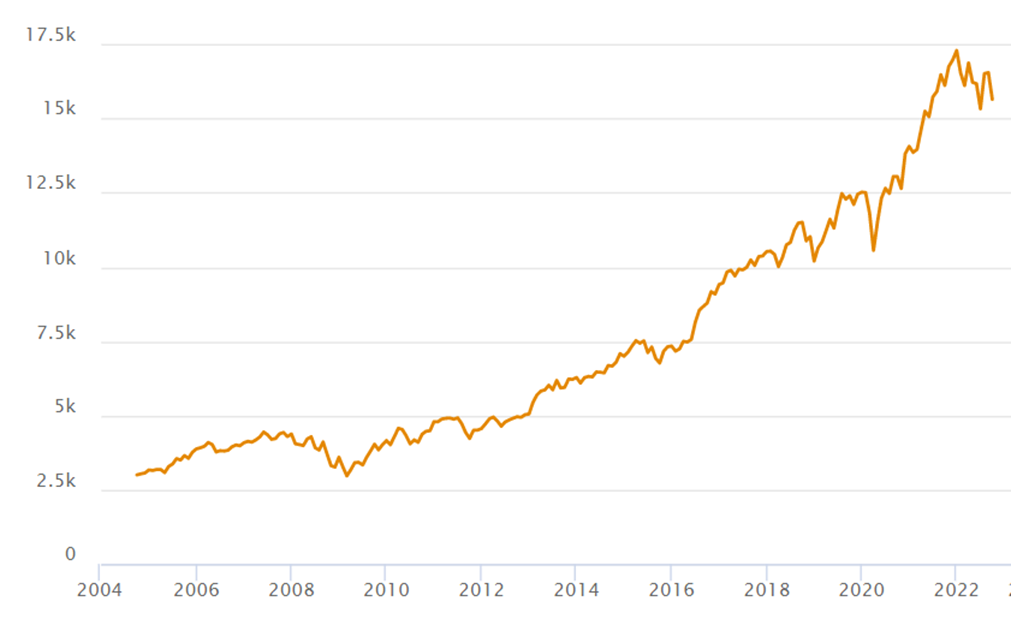The announcement in September 2022 by chancellor Kwasi Kwarteng, that first time buyers will enjoy greater relief from the Stamp Duty Land Tax is likely to be welcomed by younger generations. That said, for many younger people trying to get onto the property ladder the biggest challenge they face is raising a big enough deposit to put towards a property.
With this in mind, you may want to help your children or grandchildren buy their first home by putting money aside for them. One way you could do this is to open a Junior ISA (JISA), which provides a tax-efficient way of saving money for younger members of your family.
What you may not realise though, is that if you opt for a Cash JISA, the money you put aside to help your children or grandchildren could reduce in value in real terms. Read on to discover why this is, and steps that you may want to consider to help inflation-proof money you put aside.
First of all, let’s look at what a JISA is, and the different types that are available.
A JISA is a tax-efficient way to build a pot of money for children
JISAs were introduced in 2011 to replace Child Trust Funds and they allow British parents or grandparents to put money aside for younger members of the family. There are two different types of JISA, Cash and Stocks and Shares, both of which can only be opened for youngsters under the age of 18.
As JISAs are as tax-efficient as adult ISAs, any growth the money enjoys is typically free of Capital Gains Tax (CGT), and any amount taken from it is free of Income Tax. In the 2022/23 tax year, you can place a total of £9,000 into JISAs, which means you could build a significant pot of money for the child in a relatively short period.
When the child reaches 18 years of age they’re legally allowed to access all the money in the account. This could help them buy their first home, be used to help fund their university studies, or even help them set up a business.
With the economic and stock market uncertainty that we’ve seen in 2022, you might feel that investing in a Cash JISA is less risky than a Stocks and Shares JISA. In reality, inflation means that the money in a Cash JISA could lose spending power over time, which then means the amount you place into it could drop in value in real terms.
A Cash JISA could drop in real term value in the long term
Inflation is the rising cost of living over time, which means that £100 today is likely to buy you more than it will in the future. If you use an inflation calculator it shows that you would need £185 in September 2022 to have the same spending power as £100 in September 2004.
This means that your money needed to increase in value by 85% during the period to keep pace with an inflation rate that averaged 3.5%. This is substantially below the 9.9% inflation rate that the Office for National Statistics announced for August 2022.
August’s inflation rate is also significantly higher than the rates being paid for Cash JISAs. According to Moneyfacts, on 3 October 2022 the best Cash JISA offered just 2.85%.
With this in mind, let’s now look at how you may be able to expose the money you put aside to greater growth potential, which in turn could help to inflation-proof it.
A Stocks and Shares JISA could help to inflation-proof your money
Putting the money into a Stocks and Shares JISA could expose it to greater growth potential. This is because the stock market has typically provided greater growth potential than cash savings over the long-term, which means that putting your cash into a Stocks and Shares JISA could be the shrewder option.
To demonstrate this you might want to consider the following illustration, which shows the performance of the MSCI index between September 2004 and September 2022. The index tracks a basket of companies from 23 developed countries.

Source: MSCI
As you can see from the values on the left-hand axis, overall the index increased significantly during the period, despite several downturns along the way. This could have helped inflation-proof your money for most of the 18-year period.
You may also want to consider research carried out by Schroders, which revealed that between the start of 1952 and the end of May 2022, UK equities returned an average of 11.7% a year. Cash, on the other hand, returned 6% a year.
This means that putting money into a Stocks and Shares JISA could be a much more effective way to inflation-proof the money you’re putting aside for a child. Always remember that the value of your investment can go down as well as up, and you may not get back the full amount you invested.
Past performance is not a reliable indicator of future performance.
Get in touch
If you would like to put money aside to help a child get started in life, and would like to discuss your options, please contact us on admin@stonegatewealth.co.uk or call 01785 876222. Alternatively, if you would like to discuss your tax efficiency, investments or your retirement strategy, we would be delighted to have a conversation.
Please Note
This blog is for general information only and does not constitute advice. Please do not act based on anything you might read in this article.
All contents are based on our understanding of HMRC legislation, which is subject to change.
The value of your investments (and any income from them) can go down as well as up and you may not get back the full amount you invested. Past performance is not a reliable indicator of future performance. Investments should be considered over the longer term and should fit in with your overall attitude to risk and financial circumstances.


 Production
Production
